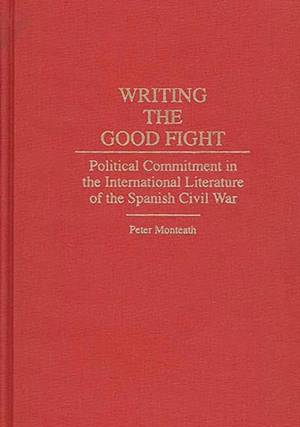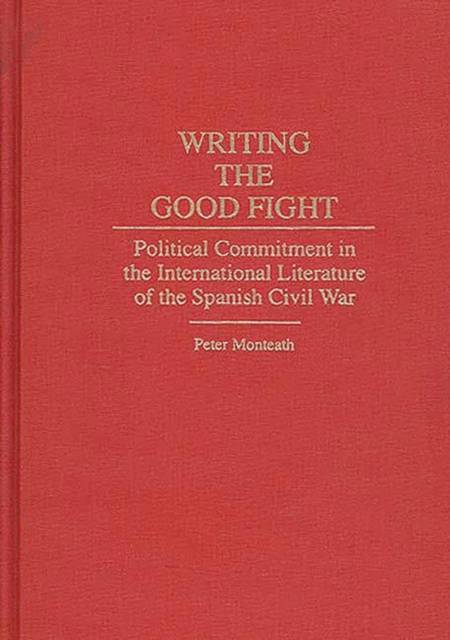
- Retrait gratuit dans votre magasin Club
- 7.000.000 titres dans notre catalogue
- Payer en toute sécurité
- Toujours un magasin près de chez vous
- Retrait gratuit dans votre magasin Club
- 7.000.0000 titres dans notre catalogue
- Payer en toute sécurité
- Toujours un magasin près de chez vous
Writing the Good Fight
Political Commitment in the International Literature of the Spanish Civil War
Peter Monteath
161,45 €
+ 322 points
Description
Monteath examines the international literature of the Spanish Civil War across the entire range of the political spectrum, from anarchism to nazism. Utilizing this approach he is able to highlight the extraordinary creative potential of a period in which political and aesthetic practice were almost inseparable.
It is widely recognized that there was an extraordinarily high level of political commitment in the literature of the 1930s in general, and of the Spanish Civil War in particular. Writers as well as the general public seemed to interpret the world very much in political terms, and they sought in political ideologies, such as fascism and communism, the answers to the pressing problems of the age. Monteath examines the fiction, non-fictional prose texts, poetry, and drama of the period across the entire range of the political spectrum to assess the impact of political commitment on literature. While an opening chapter establishes the political background to the war, subsequent chapters are structured around the question of the relationship between literature and a particular political ideology, moving from Right to Left across the spectrum. Monteath confirms the inadequacy of the notion that the Spanish Civil War was simply a war between two sides. He shows that there are a number of themes which transcend political boundaries. Beyond those, however, it is evident that the substantive interests expressed in the literature of the war vary not only from one side of the political spectrum to the other, but also within the two opposing camps, and in particular within the Left. Monteath examines these variations and the politically based reasons for their existence in detail. An important work for all students and scholars of the Spanish Civil War and the literature of the twentieth century.Spécifications
Parties prenantes
- Auteur(s) :
- Editeur:
Contenu
- Nombre de pages :
- 240
- Langue:
- Anglais
- Collection :
- Tome:
- n° 52
Caractéristiques
- EAN:
- 9780313287664
- Date de parution :
- 30-04-94
- Format:
- Livre relié
- Format numérique:
- Genaaid
- Dimensions :
- 156 mm x 234 mm
- Poids :
- 512 g

Les avis
Nous publions uniquement les avis qui respectent les conditions requises. Consultez nos conditions pour les avis.






